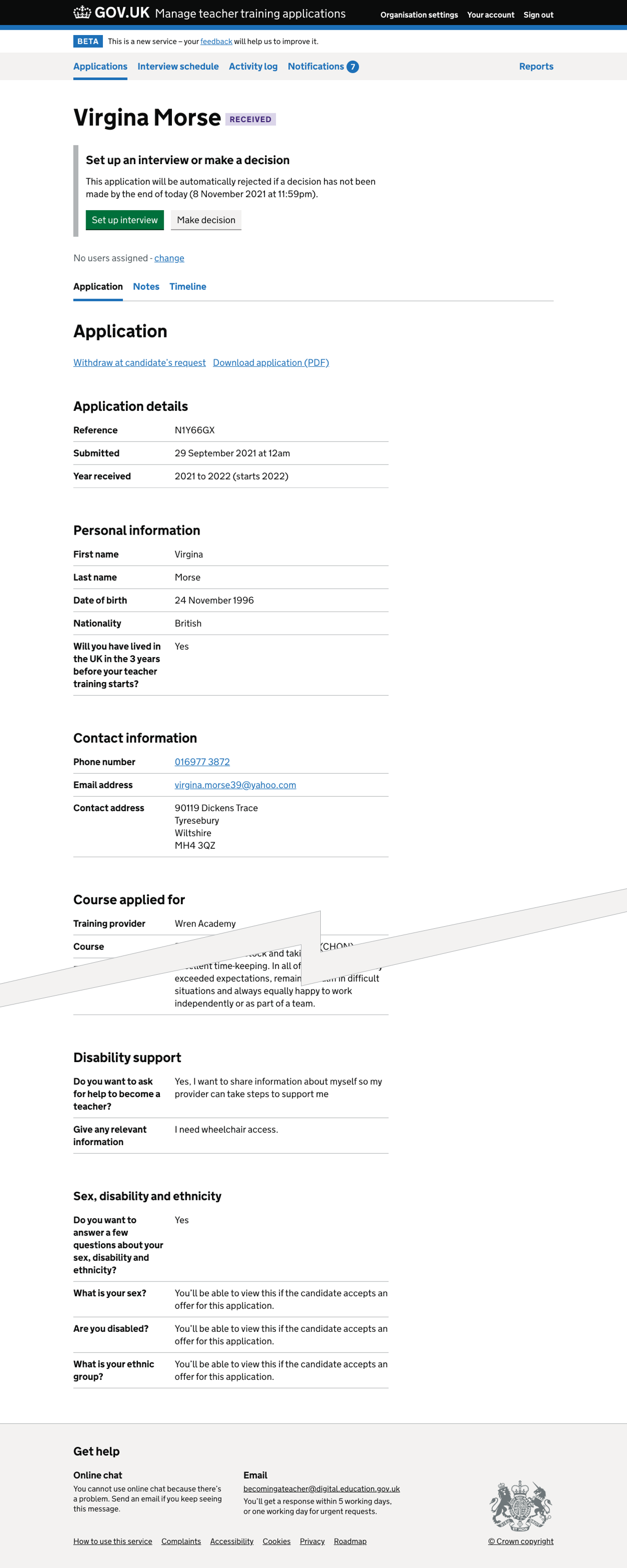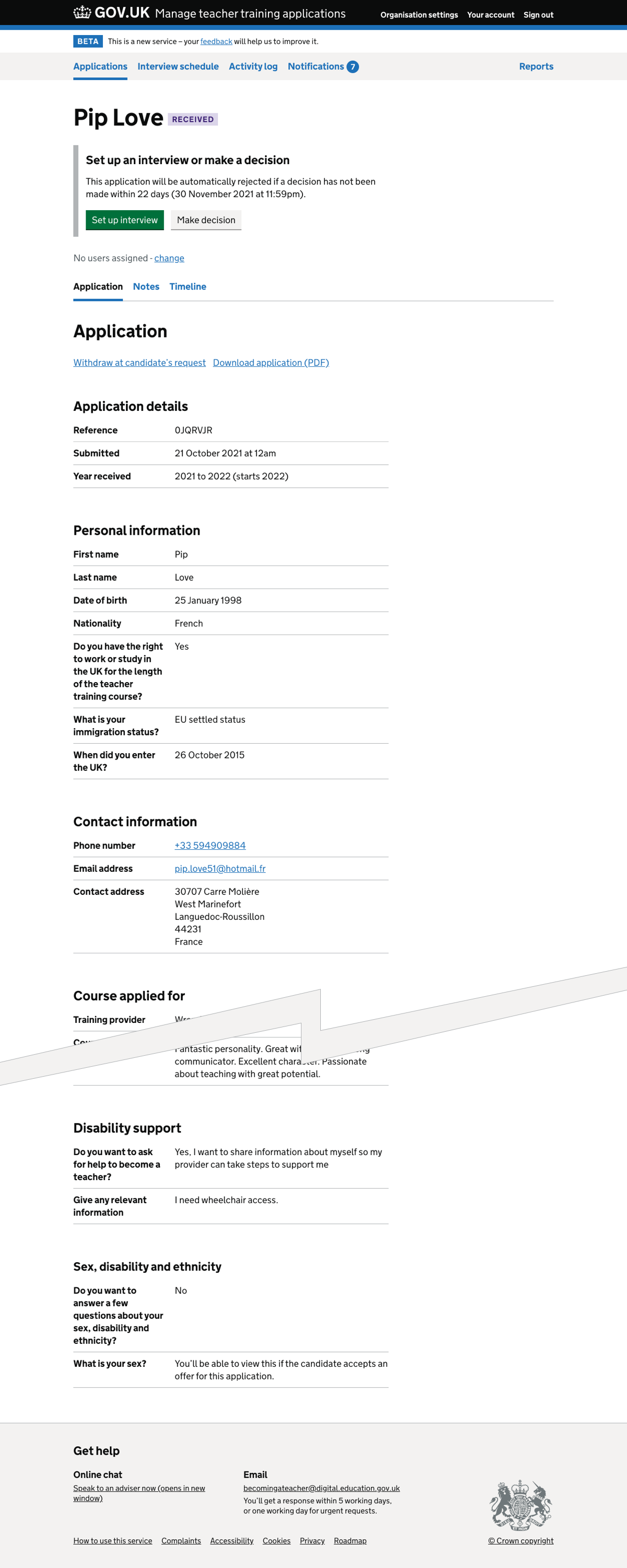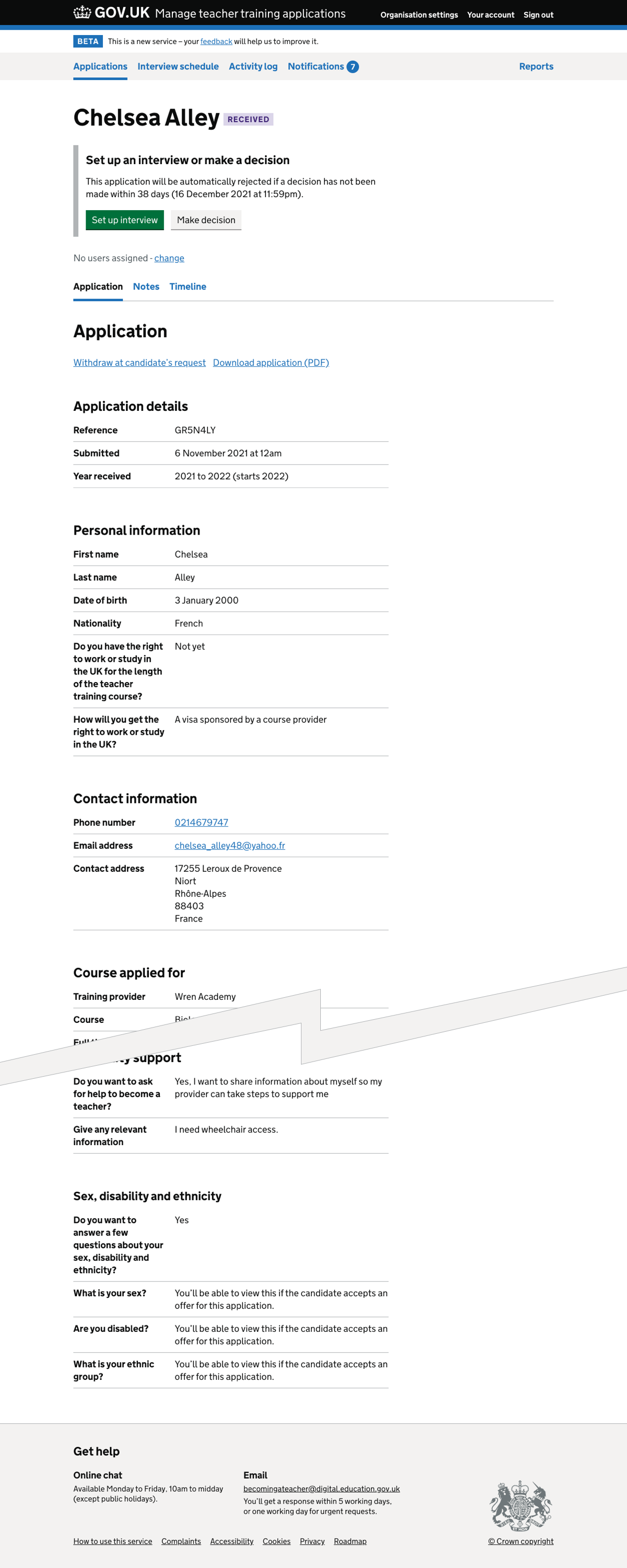Providers need information about the residency and immigration status of candidates.
For example, they need to know whether candidates qualify for ‘home tuition fee funding’ which means that they:
- pay the lower ’home’ rate of tuition fees rather than the ‘overseas’ rate
- are eligible for student loans
- might be eligible for bursaries and scholarships
The candidate service has been changed to ask more questions about residency and immigration. We’ve changed the application details page so that providers see the answers.
We’ve also removed the automatic assessment of whether the candidate qualifies for home tuition fee funding.
What candidates are asked when they apply
When giving their nationality, candidates must choose one or more options from:
- British
- Irish
- other - this reveals a field where they can enter a nationality
Candidates who are British or Irish
Candidates who are British or Irish are asked “Will you have lived in the UK in the 3 years before your teacher training starts?”
Candidates who are not British or Irish
Candidates who are not British or Irish are asked “Do you have the right to work or study in the UK for the length of the teacher training course?”
The options are:
- yes
- not yet
Candidates who have the right to work or study in the UK
Candidates who have the right to work or study in the UK are asked “What is your immigration status?”
The options are:
- EU settled status
- EU pre-settled status
- other - this reveals a free text field for them to give details
Whatever candidates answer, they are then asked “When did you enter the UK?”
Candidates who do not yet have the right to work or study in the UK
Candidates who do not have the right to work or study in the UK are asked “How will you get the right to work or study in the UK?”
The options are:
- a visa sponsored by a course provider
- another route - this reveals a free text field for them to give details
What we changed
We have:
- removed the automatic assessment of fee status
- added the responses to the new questions which are asked in the candidate service
- changed how we refer to addresses given by candidates
Automatic assessment of fee status
We have removed the automatic assessment of fee status.
We did not have enough information to give a completely accurate assessment, so we had to tell providers to “check details with candidate”.
Even now that the candidate service asks more questions, we still do not have all the information needed for an accurate assessment.
We’ve decided to give providers the information and let them make their own assessment after talking to candidates.
Responses to the new questions which are asked in the candidate service
We’ve split the personal details section of the application details into:
- personal information
- contact information
This means that:
- the sections are the same as in the candidate service
- the answers to the new questions appear at the end of the ‘personal information’ section rather than in the middle of a larger section
We’ll replay the questions exactly as they’re asked in the candidate service.
For example, we do not want to give the impression that the service has assessed that a candidate has the right to work or study in the UK. So we’ll include the full question “Do you have the right to work or study in the UK for the length of the teacher training course?”
We will not include responses that are given only so that a candidate can enter further details. For example, if a candidate selects ‘other’ as their immigration status then we will not include that answer. We’ll include only the additional details that the candidate gives.
Changing how we refer to addresses given by candidates
Candidates were previously asked to enter an ‘address’. They are now asked to enter a ‘contact address’.
This is to make it clearer that the address may not be their permanent home address. It should not be used when considering where a candidate is resident or making an assessment of their fee status.
Screenshots#
Candidates who are British or Irish#

Candidates who are not British or Irish but have the right to work or study in the UK#

Candidates who are not British or Irish and do not have the right to work or study in the UK#
